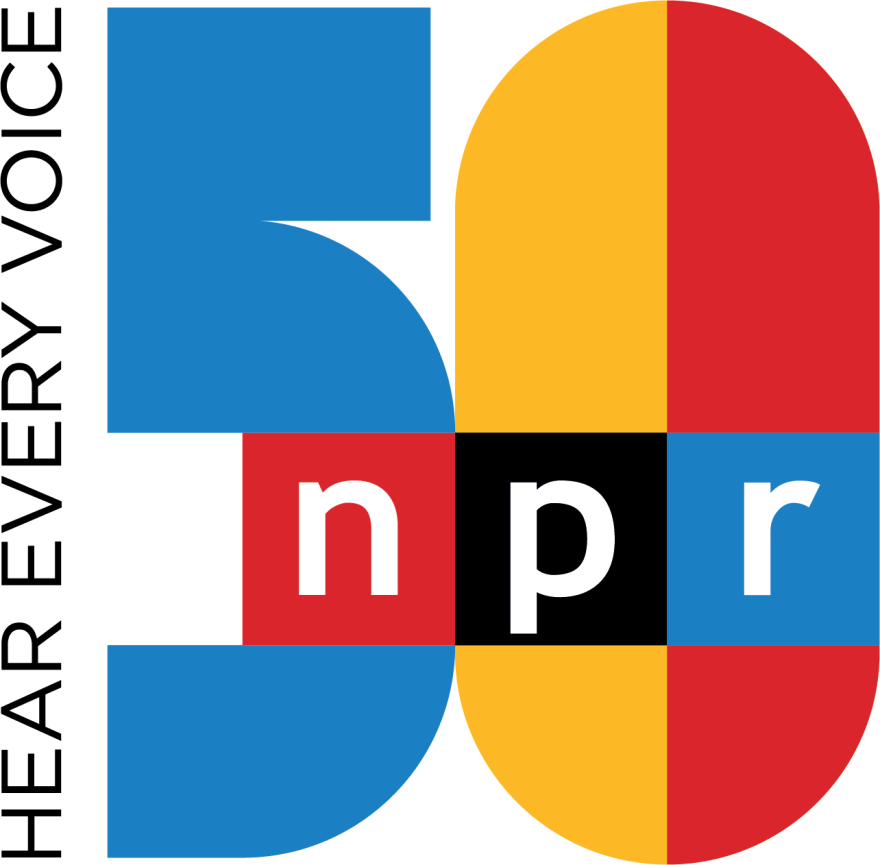The first broadcast of NPR's All Things Considered took place on May 3, 1971. That day more than 20,000 people gathered in Washington, D.C., to protest against the Vietnam War. NPR journalists covered the day's events, producing a 24-minute sound portrait of what was happening which was inducted in 2017 into the National Recording Registry of the Library of Congress for its place in US audio heritage.
In 1971, NPR debuted with around 88 Member stations, 55 employees, and fewer than 2 million listeners. Now, more than 60 million people access NPR content for free on multiple platforms each week. Valley Public Radio joined the network in 1978, and together with NPR and fellow member stations, provides an essential service to local communities, and serves as a lifeline for rural America and those seeking vital information during emergencies.

50 YEARS OF NPR
A Timeline Of NPR's First 50 Years
"For the past 50 years NPR has been an essential, trusted source for international, national and local news, and cultural programming featuring music, history, education and the arts," said NPR President and CEO John Lansing. "All Things Considered's first broadcast was a vivid report on demonstrations against the Vietnam war. Times may have changed but NPR's mission and commitment to informing the American public has not. We just went through a summer of racial unrest, a global pandemic, and a very contentious election year. NPR is covering all of this and no longer just on the radio, we are meeting our listeners where they are and addressing their interests and needs."
"During a year in which most Americans have felt isolated, public radio has served to connect us with what's happening in the world and with one another. Not just as a source of news and inspiring insights on life and the arts but as an essential, enriching, and enlightening companion in listeners' daily lives," added LaFontaine, Oliver, Chair, NPR Board of Directors.
To celebrate this milestone with our listeners, NPR has prepared a full slate of programming, and a special section on the NPR.org website. Throughout the celebration, both on-air and online, we're reflecting on — and renewing — our commitment to serve an audience that reflects America and to Hear Every Voice.
NPR 50 PROGRAMMING
Fifty and Forward: An Anniversary Celebration Of NPR
Join NPR’s Audie Cornish and other journalists for this one hour special airing Monday May 3 at 11:00 a.m. on Valley Public Radio. NPR grew up alongside a post-Watergate journalism ethos that shaped the media industry for decades. We’ll unpack that ethos: how it developed in the newsroom and changed over time, through today. Analytical, critical and forward thinking, this program tells the story of NPR's history in the context of the growth of modern media.
We Hold These Truths:
At a moment when American society feels particularly divided, and the political system particularly fragile, we propose an examination of American democracy and how people participate in it. Through a special series of host pieces, character profiles and conversations, we will explore how one learns about democracy, how one gains a stake in a democratic system, and how democracy falls short.
Michel Martin will host a special interview with NPR's Founding Mothers on All Things Considered May 8.
On Fresh Air, Terry speaks with Susan Stamberg, and NPR's first Director of Programming Bill Siemering, about the early days of NPR and the first broadcast of All Things Considered (May 3, 1971), on the same day that over 20,000 protestors shut down the city to protest the war in Vietnam. We'll hear excerpts of the amazing coverage ATC provided of the protest, and also tape of Susan Stamberg hosting ATC when she filled in as a guest host in 1972. Bill discusses the vision he had for NPR and ATC, his mission statement which declared that NPR should "reflect the diversity of America and let the country hear itself." Susan remembers the early ground-breaking days when NPR was starting out, and talks about becoming the first woman anchor of a national daily news program at a time when stations called for an "authoritative male voice" to be the host.
On May 3, 1A will spend an hour examining the past 50 years of NPR, featuring thought-provoking interviews with some of the industry's founding leaders. It will then spend a second hour looking at the future of NPR, speaking to fresh voices both in and outside of the industry. They'll also make space for 1A's most dedicated listeners – and ask what they want to hear from public radio in the years ahead. Both hours will honor the organization while acknowledging NPR's historical weak spots, and exploring how they're being addressed now – and how they may change in the decades ahead."

